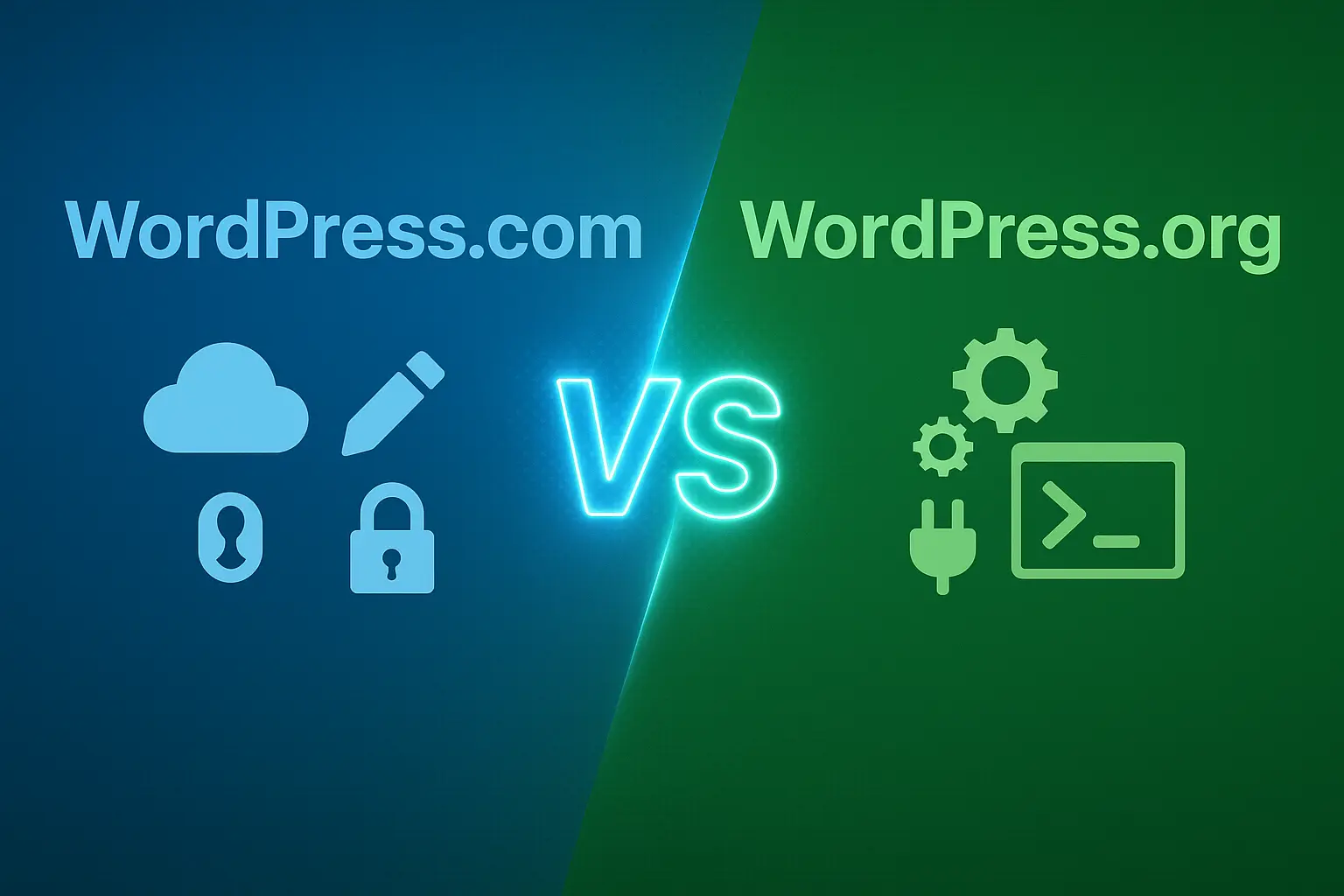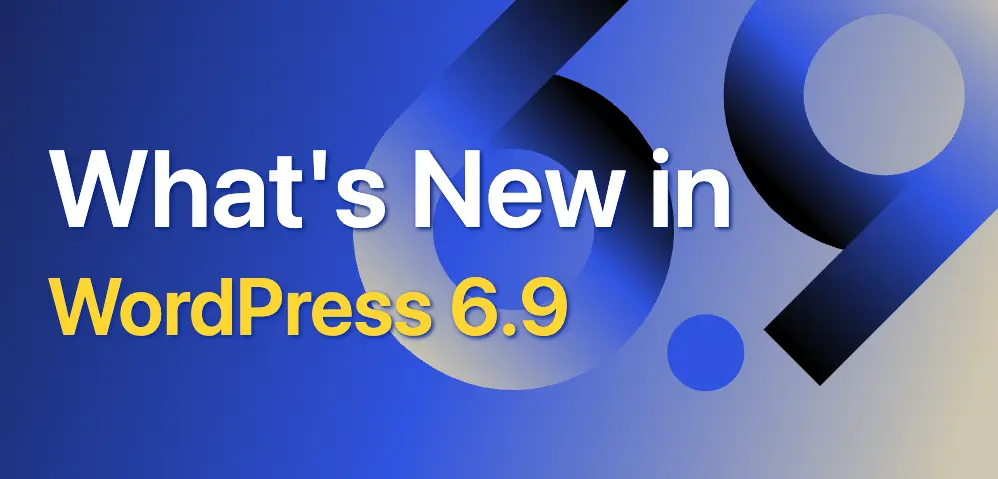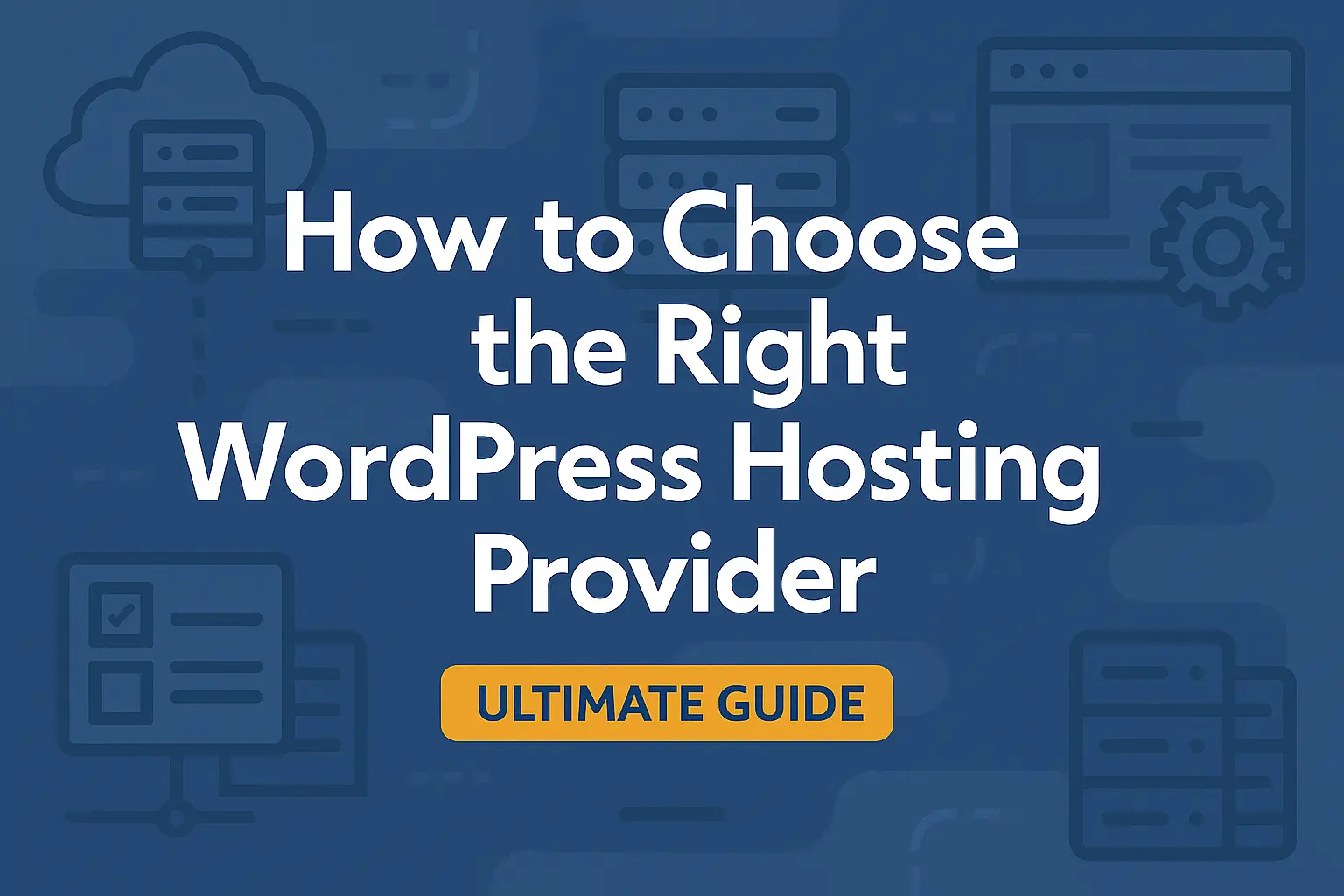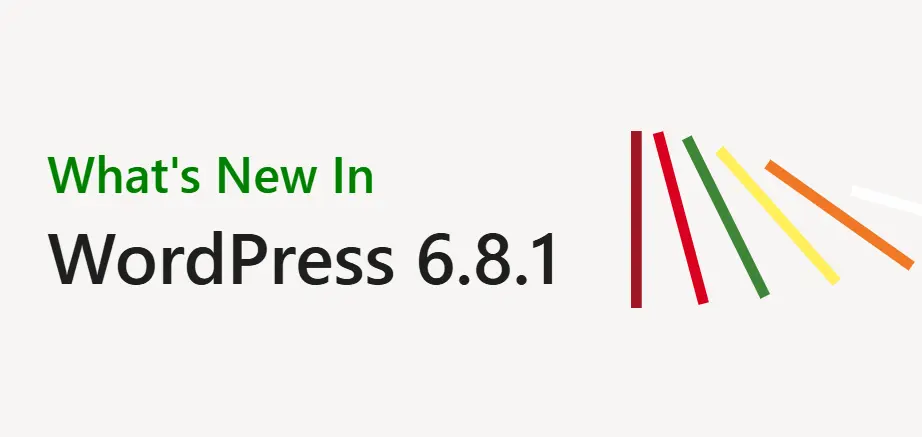WordPress.com vs WordPress.org – Which One to Choose? Should you use WordPress.com or WordPress.org? When you first decide to build a website with WordPress, you’re hit with this unexpected crucial decision.
At first glance, it seems like a subtle naming issue — but make no mistake, this is one of the most important decisions you’ll make when launching your website.
In this guide, we’ll break down everything you need to know in simple, non-technical language. Whether you’re building a blog, an online store, a portfolio, or a business site, this guide will help you pick the right platform and avoid costly mistakes.
This isn’t just another quick comparison. This is a comprehensive, step-by-step breakdown of over 20,000 words, covering every detail from setup and pricing to SEO and support.
Table of Contents:
- What Is WordPress?
- WordPress.com Overview
- WordPress.org Overview
- Key Differences (Side-by-Side Comparison Table)
- Hosting, Domain & Setup
- Customization & Flexibility
- Plugins & Themes
- Monetization Options
- SEO Capabilities
- Pricing Breakdown
- Performance & Speed
- Security Features
- Support & Community
- Use Cases: Which Is Best For You?
- Pros and Cons of WordPress.com
- Pros and Cons of WordPress.org
- Final Verdict: Which One Should You Choose?
- Summary & Recommendation
- Additional Resources
- Conclusion
What Is WordPress? (The Foundation)
Before we dive into the difference between WordPress.com and WordPress.org, let’s clarify what WordPress itself actually is.
WordPress in Simple Terms:
WordPress is a Content Management System (CMS) — a tool that lets you build, manage, and publish websites without writing code from scratch.
It powers over 43% of the internet in 2025 — from tiny blogs to global news sites, eCommerce stores, and enterprise portals.
The WordPress software is open-source, free, and incredibly flexible.
But here’s the catch…
There are two major “versions” of WordPress:
- WordPress.com – a hosted platform that manages everything for you (developed by Automattic)
- WordPress.org – the self-hosted version where you take control
Let’s explore each one deeply.
WordPress.com Overview
What is WordPress.com?
WordPress.com is a website hosting platform run by Automattic (the company founded by WordPress co-founder Matt Mullenweg).
With WordPress.com, everything is managed for you — hosting, updates, backups, and security are all handled behind the scenes.
You can start for free and upgrade to paid plans for more features.
Features of WordPress.com:
- Free website hosting with a WordPress subdomain (
yourname.wordpress.com) - No need to worry about maintenance or security
- Built-in themes and block editor
- Paid upgrades for custom domains, monetization, and plugins
- Mobile app for managing content
- Built-in Jetpack features on paid plans
Who is it for?
- Beginners who want a hands-off experience
- Bloggers or writers who don’t need much customization
- Users who don’t want to deal with third-party hosting or maintenance
WordPress.org Overview
What is WordPress.org?
WordPress.org is the official website of the open-source WordPress software.
Unlike WordPress.com, you’re downloading the actual software and installing it on your own web hosting provider (like SiteGround, Bluehost, or Hostinger).
This gives you full control, endless flexibility, and access to thousands of free themes and plugins.
Features of WordPress.org:
- You own your website and all its data
- Full access to install any free or premium plugin or theme
- Unlimited monetization options
- You choose your hosting, domain, and server specs
- Developer-friendly with custom code, integrations, and databases
Who is it for?
- Site owners who want maximum control and scalability
- Businesses and eCommerce stores
- Bloggers, agencies, or developers who need advanced customization
Key Differences Between WordPress.com and WordPress.org
Let’s break this down in a quick comparison table:
| Feature | WordPress.com | WordPress.org |
|---|---|---|
| Hosting | Provided by WordPress.com | You provide your own hosting |
| Domain Name | Free subdomain (paid for custom) | Custom domain required |
| Cost | Free plan with limited features | Hosting and domain costs apply |
| Plugins | Only on paid plans | Unlimited plugin access |
| Themes | Limited; custom on higher plans | Fully customizable |
| Monetization | Limited on free plans | Full monetization freedom |
| Ads | WordPress ads shown on free plans | No forced ads |
| Storage | Limited on free plan | Depends on your hosting |
| Maintenance | Handled by WordPress.com | You manage it or automate it |
| SEO Tools | Basic (better on Business plan) | Full SEO access with plugins |
| Custom Code | Not allowed (except on Business plan) | Full code and database access |
| eCommerce | Only on top-tier plan | Full WooCommerce integration |
| Branding | WordPress branding on free plan | Your brand, full control |
Hosting, Domain & Setup
One of the biggest differences between WordPress.com and WordPress.org is how hosting and domains are handled.
WordPress.com: Hosting and Domain
When you use WordPress.com, your hosting is included in your account. It’s seamless — you sign up, pick a site name, and start publishing.
Free Plan:
- Comes with a free subdomain like
yourname.wordpress.com - No need to buy hosting or manage servers
- WordPress handles uptime, performance, and security
Paid Plans:
- You can connect a custom domain (like
yourname.com) - You still don’t need to manage hosting or server settings
- Limits on bandwidth, storage, and advanced features (based on plan)
WordPress.org: Hosting and Domain
Here, you’re in full control. You buy your own hosting and register your domain name, then install WordPress manually or with 1-click tools (many hosts offer this).
Setup Steps:
- Buy a domain from Namecheap, GoDaddy, etc.
- Choose a web host (SiteGround, Bluehost, Hostinger, Rocket.net, etc.)
- Use cPanel or a 1-click installer to set up WordPress
- Log into your site and start building
Advantages:
- You can move to better/faster hosts anytime
- You can scale up (e.g. VPS, cloud servers)
- You choose your domain registrar, DNS, CDN, and optimization stack
Hosting Providers We Recommend:
- Beginner-Friendly: Bluehost, SiteGround, Hostinger
- Speed Focused: Rocket.net, Cloudways, Kinsta
- Developer-Focused: DigitalOcean, Vultr, RunCloud
Customization & Flexibility
Customization is where WordPress.org truly shines.
WordPress.com Customization
- Free plan: only basic themes and settings
- Premium plan: access to more themes and color settings
- Business plan: allows installing custom themes and some plugins
- No FTP access, limited control over backend files
- Code edits are restricted unless you upgrade
You’re working inside a sandbox. Good for beginners, but limiting as you grow.
WordPress.org Customization
- Install any free or premium theme
- Edit theme files, functions, stylesheets
- Use child themes, custom post types, advanced layout builders
- Add any plugin — free, premium, or custom-built
- Access to core files, database, and custom code (PHP, JavaScript, etc.)
Whether you want to build a blog or a custom LMS or directory, WordPress.org lets you do it.
Plugins & Themes
Plugins and themes are the backbone of WordPress — they allow you to add new features or completely redesign your site.
WordPress.com Plugins:
- Free and Personal plans: no access to plugins
- Business and eCommerce plans: access to plugin library (including WooCommerce)
- Limited ability to upload custom plugins
- Jetpack features are built-in
WordPress.org Plugins:
- 60,000+ free plugins in the official repository
- Upload premium or third-party plugins
- Build your own plugins or use ones from marketplaces like:
- CodeCanyon
- BeautifulPlugins.com
- GPLVault (GPL licensed)
- No limits — from caching and SEO to security and AI tools
Themes:
- WordPress.com: limited to curated selection
- WordPress.org: install any theme or build your own
Monetization Options
If you want to earn money from your website, the version you choose will greatly affect your flexibility.
WordPress.com Monetization
- Free Plan: No monetization allowed; WordPress.com displays ads on your site
- Paid Plans:
- Personal: Limited
- Premium: Can use WordAds (WordPress’s own ad program)
- Business: Can integrate with WooCommerce, Stripe, and more
You can’t use platforms like Google AdSense or affiliate marketing on lower plans.
WordPress.org Monetization
- Total freedom to:
- Use Google AdSense, Ezoic, Mediavine
- Add affiliate links, banners, and sponsored content
- Sell courses, memberships, or digital products
- Use WooCommerce to sell physical or digital goods
- Accept donations with tools like GiveWP
With the right setup, your WordPress.org site can be a powerful income-generating machine.
SEO Capabilities
Search engine optimization (SEO) is critical if you want people to find your content via Google and other search engines.
WordPress.com SEO:
- Free Plan: Limited control (no meta tags, limited customization)
- Paid Plans:
- Business Plan gives access to basic SEO tools (via Jetpack)
- Still some limitations in URL structure and plugin access
WordPress.org SEO:
- Install powerful SEO plugins like:
- Yoast SEO
- Rank Math
- All in One SEO
- Full control over:
- Meta titles, descriptions
- Custom URLs
- Schema markup
- Redirects, sitemaps, robots.txt
- Optimize images, lazy load, CDN, and more for SEO performance
SEO is a major reason why serious bloggers and businesses go with WordPress.org.
Pricing Breakdown
Understanding the cost of running a WordPress website is crucial when choosing between WordPress.com and WordPress.org. While WordPress.com seems free and easy at first, you might end up paying more for flexibility. On the other hand, WordPress.org is technically free but comes with other associated costs.
WordPress.com Pricing
Here’s a breakdown of the official WordPress.com pricing tiers (2025 figures may vary slightly):
| Plan | Cost (Annual) | Key Features |
|---|---|---|
| Free | $0 | WordPress.com subdomain, ads, limited themes & storage |
| Personal | ~$48/year | Custom domain, no ads, basic support |
| Premium | ~$96/year | More themes, monetization tools, advanced design |
| Business | ~$300/year | Install plugins/themes, SEO tools, remove branding |
| eCommerce | ~$540/year | WooCommerce, advanced payment gateways |
| VIP | Custom Quote | Enterprise hosting, dedicated support |
⚠️ You’ll need at least the Business Plan to get close to WordPress.org-level flexibility.
WordPress.org Pricing
The WordPress software is free, but there are other real-world costs:
| Component | Estimated Cost (Per Year) |
|---|---|
| Domain Name | $10 – $15 |
| Web Hosting | $30 – $200+ (shared vs. managed) |
| Premium Theme | $0 – $100 (optional) |
| Premium Plugins | $0 – $500+ (depending on features) |
| Developer Help | $0 – $2,000+ (if you hire professionals) |
While you pay more upfront with WordPress.org, it’s often cheaper long-term due to the flexibility and control you gain.
Performance & Speed
Website speed and performance are vital for SEO, conversions, and user experience.
WordPress.com Performance
- Free plan has shared resources → slower under load
- Premium/Business plans offer better optimization
- CDN and Jetpack tools improve image delivery
- No access to server optimization, caching tools, or fine-tuning
You can’t use advanced speed optimization plugins like WP Rocket or custom CDNs unless you’re on higher plans.
WordPress.org Performance
- You can:
- Choose high-performance hosts (like Rocket.net or SiteGround)
- Install caching plugins (e.g., WP Rocket, W3 Total Cache)
- Use Cloudflare, BunnyCDN, or custom CDNs
- Optimize images and scripts manually
With the right stack, a WordPress.org site can be blazing fast, even under heavy traffic.
Security & Backup
WordPress.com Security
- Automatic security updates and monitoring
- Regular backups (not downloadable on free plans)
- Jetpack handles brute-force protection and spam filtering
- SSL included on all sites
t’s mostly hands-off and beginner-safe.
WordPress.org Security
- You are responsible for:
- Installing security plugins (Wordfence, iThemes, Sucuri)
- Regular updates (themes, plugins, core)
- Backups (UpdraftPlus, BlogVault, etc.)
- Firewall & DDoS protection (via host or CDN)
You can get enterprise-grade protection, but it requires setup and awareness.
Support & Community
WordPress.com Support
- Email & forum support for free and lower-tier users
- Live chat and priority support on Business/Ecommerce plans
- Community forums for help (moderated by staff)
WordPress.org Support
- No dedicated support unless provided by plugin/theme developers
- Massive open-source community
- Help available on:
- WordPress.org support forums
- Reddit groups, Facebook groups
- YouTube, blogs, courses, meetups
- Professional agencies and freelancers available
WordPress.org has the largest open-source support ecosystem in the CMS world.
Use Cases & Real-World Examples
WordPress.com Is Ideal For:
- Personal blogs
- Small non-profits
- Event microsites
- Students or hobbyists
- Quick prototypes
WordPress.org Is Ideal For:
- eCommerce sites (via WooCommerce)
- Business websites
- Membership portals
- eLearning platforms (LMS)
- Multilingual sites
- Custom app-like functionality
Pros & Cons Summary
WordPress.com Pros:
- Beginner-friendly
- Hosting included
- Secure and managed
- Free to start
- Good for hobby sites
WordPress.com Cons:
- Limited flexibility
- Ads on free plans
- Expensive for full features
- Plugin & theme restrictions
- Less control over monetization
WordPress.org Pros:
- Full control
- Plugin/theme freedom
- Ideal for SEO & performance
- Any monetization method allowed
- Developer-friendly & scalable
WordPress.org Cons:
- Requires setup and hosting
- You’re responsible for maintenance
- Slight learning curve for beginners
WordPress.org vs WordPress.com: Which One Should You Choose?
Still unsure? Here’s a direct, honest answer:
| Situation | Recommendation |
|---|---|
| “I want a free blog for fun” | WordPress.com (Free Plan) |
| “I don’t want to manage updates or hosting” | WordPress.com (Business) |
| “I want to run a real business online” | WordPress.org |
| “I plan to earn money via ads or affiliate links” | WordPress.org |
| “I want to install custom plugins or build apps” | WordPress.org |
| “I need a super fast, SEO-optimized website” | WordPress.org |
Final Verdict: Our Recommendation
If you’re serious about building a professional website, want to monetize your site, and need control over everything from SEO to plugins:
Go with WordPress.org.
It has a slight learning curve but is worth every bit of effort.
However, if you just need a simple, low-maintenance blog or site, and you don’t care about monetization or customization:
WordPress.com is a solid, beginner-friendly choice.
Resources for Getting Started
Official Websites:
Recommended Hosting for WordPress.org:
Useful Plugins:
- SEO: Yoast, Rank Math
- Security: Wordfence, Sucuri
- Caching: WP Rocket, W3 Total Cache
- Backup: UpdraftPlus, JetBackup
- Content Automation: AI Content Writer – Automatic Content Generator and Auto Poster – a powerful WordPress plugin designed to help you effortlessly create and publish high-quality content on your website.
Conclusion
Choosing between WordPress.com and WordPress.org isn’t just a technical decision — it’s a strategic step for your online journey.
Think about your goals:
- Do you want a small personal site or a scalable business platform?
- Do you want to learn and grow your skills, or just write and publish easily?
This guide was written to equip you with not just a comparison — but clarity.
If you decide to go with WordPress.org, you’ll unlock the full potential of what WordPress can offer.
If you stick with WordPress.com, it’ll get you online fast — and that’s a great place to start.
Stay tuned for more WordPress help, tips, tutorials, and articles at WpFresher.com. 🚀



